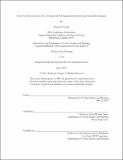| dc.contributor.advisor | Anne Whiston Spirn. | en_US |
| dc.contributor.author | Turpin, Benjamin(Benjamin Wilkes) | en_US |
| dc.contributor.other | Massachusetts Institute of Technology. Department of Urban Studies and Planning. | en_US |
| dc.date.accessioned | 2020-02-28T20:51:02Z | |
| dc.date.available | 2020-02-28T20:51:02Z | |
| dc.date.copyright | 2019 | en_US |
| dc.date.issued | 2019 | en_US |
| dc.identifier.uri | https://hdl.handle.net/1721.1/123919 | |
| dc.description | This electronic version was submitted by the student author. The certified thesis is available in the Institute Archives and Special Collections. | en_US |
| dc.description | Thesis: M.C.P., Massachusetts Institute of Technology, Department of Urban Studies and Planning, 2019 | en_US |
| dc.description | Cataloged from student-submitted PDF version of thesis. | en_US |
| dc.description | Includes bibliographical references (pages 83-85). | en_US |
| dc.description.abstract | Universities and the cities they are located in often have contentious relationships. As anchor institutions, urban universities provide significant employment and educational benefits, though their success and expansion often leads to rising housing costs and displacement in surrounding communities. In this project, I set out to understand how two urban universities, the University of Pennsylvania and Massachusetts Institute of Technology, balance development and expansion with community needs. Through studying these two universities and their successes and failures within the realms of development, housing, and community engagement, I developed a framework for equitable development that centers university development and investment around the goal of affordable housing and equitable communities. This framework aims to meet the needs of both the university and the community, providing affordable housing and public amenities alongside real estate assets and a return on investment for the university. This framework is then applied to a site in Cambridge, illustrating how the principles outlined in this thesis can drive physical and programmatic development in a way that expands housing affordability, provides public amenities, and meets the spatial and financial needs of the university. | en_US |
| dc.description.statementofresponsibility | by Benjamin Turpin. | en_US |
| dc.format.extent | 85 pages | en_US |
| dc.language.iso | eng | en_US |
| dc.publisher | Massachusetts Institute of Technology | en_US |
| dc.rights | MIT theses are protected by copyright. They may be viewed, downloaded, or printed from this source but further reproduction or distribution in any format is prohibited without written permission. | en_US |
| dc.rights.uri | http://dspace.mit.edu/handle/1721.1/7582 | en_US |
| dc.subject | Urban Studies and Planning. | en_US |
| dc.title | Town for all, gown for all : a framework for equitable university-led urban development | en_US |
| dc.title.alternative | Framework for equitable university-led urban development | en_US |
| dc.type | Thesis | en_US |
| dc.description.degree | M.C.P. | en_US |
| dc.contributor.department | Massachusetts Institute of Technology. Department of Urban Studies and Planning | en_US |
| dc.identifier.oclc | 1140071762 | en_US |
| dc.description.collection | M.C.P. Massachusetts Institute of Technology, Department of Urban Studies and Planning | en_US |
| dspace.imported | 2020-02-28T20:51:02Z | en_US |
| mit.thesis.degree | Master | en_US |
| mit.thesis.department | UrbStud | en_US |
